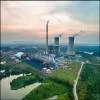- Home
- Building Material
- Steel
- Going global
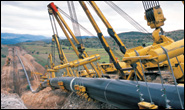
Going global
Many years from now, a chronicler of the post new millennium movements of India Inc's development sector could well liken them to New Age Conquistadors. However, the players are not quite up there yet as occupiers of international space to merit being described as conquerors. Corporate raids like that of Tata Steel acquiring Corus for $14 billion in 2007, Tata Motors taking over Jaguar Land Rover, Mahindra & Mahindra's purchase of South Korean Ssangyong or even Hindalco's acquisition of Novelis for $6 billion, though attracting international attention, are at best an oddity.
But there is now admittedly a growing trend, a very conscious hunger on the part of firms contributing to India's construction and infrastructure sector space, like L&T, Essar Projects, Punj Lloyd, Tata Steel, Jindal Steel & Power, Afcons Infrastructure and many others, to explore new international geographies for business. Many of them, notably engineering procurement and contracting firms, are increasingly beginning to sport a frontier look. Through the 1990s, many have had a presence in traditional markets like the GCC - Saudi Arabia, Kuwait, UAE, Qatar, Bahrain and Oman - or even the oil-rich Caspian region, but over the past decade-and-a-half, many have ventured as far afield as Singapore, Papua New Guinea, Australia, the US, Canada, Latin America, and even war-ravaged Afghanistan and Iraq.
And now even that last El Dorado, Africa - which thus far lay outside their weltanschauung for development - beckons. Indian billionaires are reportedly investing $15 billion every year in what was once derisively described as the 'Dark Continent' to tap demand. Among the people who have lined up greenfield investments are the Tatas, Vedanta chief Anil Agarwal, Adi Godrej and JSPL's Naveen Jindal.
Global Focus
If these firms are seen punching above their weight to carve themselves space internationally it is due to both need and greed. As India Inc looks to achieve its goals of becoming an economic superpower, thanks to fast depleting energy reserves, there is an enormous need to secure long-term raw material sources like coal mines in Mozambique, Cameroon, Botswana, Australia and Bolivia or even oil exploration fields in Vietnam, the Gulf of Mexico and Azerbaijan.
Veritably, expanding abroad in what is now a close-knit world has become a strategic imperative for large companies. Firms have majorly shifted their focus overseas, pushing themselves further on a global platform to make up for the slowdown in the domestic market.
For instance, L&T Construction, India's largest engineering and construction company, and ranked 27th among the world's leading contractors - with a total order book of Rs 1.54 trillion as on March 31, 2013 - has said it will chase more orders from overseas to meet its order inflow guidance. The company's business abroad currently extends to areas like buildings and factories, heavy civil infrastructure, power transportation and distribution, water and renewable energy. L&T Construction's heavy civil infrastructure division is exploring opportunities in the Middle East and recently participated in the tenders for the Riyadh and Qatar Metro projects. On the transportation side, it has expanded its operation in the GCC and is currently executing Sheikh Khalifa Interchange, a major infrastructure project linking the emirates of Abu Dhabi and Dubai. In the power transmission business, it already has a strong foothold in the GCC and is expanding its footprints to Africa, South East Asia and Iraq. The company is also pursuing portfolio expansion in T&D along with forays into new lines of business. It is looking to diversify into infra electrics in existing Gulf markets and is eyeing prospects of transmission tower exports to the US and Canada as a part of identifying new zones for business. It is also targeting new geographies globally to tap emerging opportunities in desalination, water management, water and wastewater pipeline rehabilitation and applications of solar thermal technology and forging alliances with leading technology firms. SN Subrahmanyan, Whole Time Director & Senior Executive Vice President (Infrastructure & Construction), L&T, explains his company's strategy for growth thus: "It will be through expansion of our footprints and strategic tie-ups for technology. Through diversification, penetration and expansion into new markets, we will continue to consolidate our different businesses and grow exponentially."
In its objective to become a $6 billion plus company by 2016, Essar Projects, the engineering and construction arm of the Essar Group, is looking to generate more business from overseas markets including power plants, refineries and hydrocarbon projects. The company, with a current total order book of $4 billion, now has active projects or prospects on the verge of being secured in areas like Papua New Guinea, Indonesia, Singapore, Myanmar, UAE, Saudi Arabia, Tanzania, Nigeria, the UK and the US. What is also significant here is that Essar, with an asset base of $30 billion, is betting big on Africa. Much of this enthusiasm derives strength from the successful completion of a nickel slurry pipeline in Madagascar a few years ago; "a project that was tough for more reasons than just the terrain," according to MS Ambegaonkar, Director - Business Development (Global), Essar Projects. "We are a very strong EPC force and are therefore looking for a larger international footprint. We are exploring the African markes very strongly, have a plan of action fixed, and are also seriously eyeing South American countries like Chile, Peru and Brazil."
Around 60 per cent of Punj Lloyd's revenues come from energy and infrastructure projects carried out in overseas markets like the Asia-Pacific region, the Middle East and Africa and around the Caspian Sea area.
The company has the advantage of a diversified portfolio, large equipment yards strategically placed globally, in-house engineering, a multicultural skilled workforce and a robust risk management system. Its ongoing EPC work includes the Myanmar-China oil and gas pipeline, platform compression facilities for PTT Public in Thailand, the Polysilicon project for Qatar Petroleum, and the Sabah Sarawak pipeline in Malaysia for Petronas. The transnational firm's most significant project is the 1,768-km Baku-Tbilisi-Ceyhan pipeline constructed to carry crude oil from the offshore Azheri-Chirag-Gunashil oilfield in the Caspian Sea to the Turkish Mediterranean coast, from where the crude is further shipped via tankers to European markets. "Punj Lloyd was the only Indian contractor in the project and the first to complete its section of the work," trills Shivendra Kumar, President and CEO, Energy-South Asia, Punj Lloyd. "The project was instrumental in laying a strong foundation of safety, environment and quality for hich the company became renowned. Now with our experience of working in foreign lands for over two decades, exploring new geographies is routine business."
Also extremely focused on its overseas role is Afcons Infrastructure, which began work abroad in the 1980s through projects in Iraq and other countries, and counts the $200-million Sohar Bulk Jetty Project it executed in a JV with Saipem among its most noteworthy international projects. Afcons has formed strategic alliances with global EPC players like Saipem, IHI, Strabag, Technip, Transtonnelstroy and Gunanusa. Initially, the company's projects were executed on an opportunistic basis, but since the middle of the last decade, efforts have been initiated to maintain a significant presence in overseas markets. At present, 20 to 25 per cent of the Shapoorji Pallonji Group firm's revenues come from overseas markets and the company intends to raise its international revenue profile to 40 per cent over the next three years. "Even though there were ample opportunities in India, the step was taken to ensure development of the organisation by delivering projects abroad in a stricter environment with stringent regulations on quality, HSE etc," explains K Subrahmanian, Managing Director, Afcons Infrastructure. "The learning curve was steep and we were able to deliver projects on time every time. This has held us in good stead and now we are one of the few EPC firms from India with a strong delivery experience in the overseas market. Our work has also helped improve the perception of the competitive abilities of Indian EPC firms and has won great respect for us."
Meanwhile, NCC's international operations are currently centred on UAE, Qatar and Oman. In Oman, it has constructed the path-breaking Al Amerat-Quriyat Road Project and the Wadi Adai-Al Amerat Road project, which contains the tallest bridge in the country. Its work zone includes roads, bridges and tunnels, buildings, infrastructure development including sewerage, storm water, drinking water, water transmission and distribution lines and desalination plants. The company now plans to expand to neighbouring countries like Kuwait, Saudi Arabia, Bahrain and Kenya and include Sewage Treatment Plant, power distribution, railways and oil and gas in its ambit. While the value of major projects done by the company is around Rs 2,465 crore, its ongoing projects, which include the Batinah Coastal Road Project in Oman and building and other infrastructure works for Qatar Petroleum, are in the region of Rs 3,852 crore. "Twenty per cent of our turnover is from projects abroad," affirms NR Alluri, Director, NCC Ltd International Division. "We intend to raise overseas contribution to about 25 per cent in coming years. We hope to increase profit margins in the future once the global environment improves."
It is a combination of such optimism and domestic compulsions like a sluggish power sector that drives firms like Tata Power to seek fresh pastures abroad. The country's largest power producer is charting ambitious plans across various world geographies, including the Middle East. It aims to have about 5,000 mw overseas generation capacity in place in the next five to seven years. Tata Power already has significant interests in Bhutan, Indonesia, South Africa, Turkey and Georgia and is eyeing a diverse portfolio of thermal, hydro and renewables. The company has done feasibility studies for thermal power projects in Vietnam and Myanmar; it is looking to have capacity of 600 mw in both countries. While it is has tied up with Geodynamics to commission a 1-mw pilot plant in Australia, in Indonesia it has won a 240-mw geothermal project along with its consortium partners. In South Africa, its JV with Exxaro, Cennergi, has tied up finances for two wind energy projects with a combined capacity of 200 MW. Tata Housing has also indicated its intention to launch luxury projects in Sri Lanka and the Maldives. Tata Steel has already acquired coal mines in Mozambique. Not to be outdone Tata Projects is also looking for opportunities abroad. It has entered into JV agreements such as the one with Al Tawleed Energy and Power Company for execution of projects in the Kingdom of Saudi Arabia; TPL-Total Quality Assurance (TQA) in South Africa and Mauritius to provide third-party inspection services; and with Balfour Beatty in the UK. "We examine every potential opportunity based on its merits," says Vinayak Deshpande, Managing Director, Tata Projects Ltd. "The Tata Group's adherence to the highest standards of quality, safety and integrity in every project executed makes us internationally attractive."
No one exemplifies India Inc's aggro and appetite for international acquisitions - and the desire to leave a global imprimatur - more than Naveen Jindal, Chairman, Jindal Steel & Power Ltd (JSPL). Under his leadership, the company has drawn up Vision 2020, which combines domestic and international initiatives intended to take JSPL to the next level of a $20 billion company. JSPL already has a presence in South Africa, Madagascar, Mozambique, Tanzania and Zambia and has embarked on an expansion journey in global markets to reduce its dependence on local resources from India. It is looking to acquire control over energy resources in places like Australia and South America. In Indonesia, for instance, the company has invested in exploration assets - thermal and coking coal - while it is involved in coal exploration projects in Australia, even increasing its shareholding in coal explorer Rockland Richfield. Admittedly, there have been hiccups along the road. Jindal's contract in Bolivia for the mining rights at El Muton mines - among the largest untapped iron ore reserves in the world - where he committed to invest $600 million was a deal that went sour when the local government went back on its word to supply gas for the pelletisation plant. A wiser Jindal is now examining smaller deals of up to $200 million in greenfield iron ore mines and parleying with various international firms.
The Hurdles
While Indian ability and adaptability abroad are not in question, the issue is one of new challenges; often in the case of backward regions like Africa or Papua New Guinea, there is a fear of dealing with the unknown, such as hostile terrain and a tribal population far removed from modernity and logistical difficulties. For example, Essar Projects, while setting up a nickel slurry pipeline project in Madagascar, encountered hitherto unknown problems like having to appoint a German clearing agent to get construction equipment unloaded from ships - 300 pieces of heavy equipment had lain stranded at a port for months because no one quite knew what to do with them - and cleared for use in the project.
Some other travails include new conditionalities imposed by governments, particularly in the post Arab Spring Middle East, and the move to step up hiring of locals at pay scales higher than those offered to Indian employees, thus escalating project costs. Not to mention the danger of Chinese contractors undercutting Indian firms. "Overseas markets have their own issues," confirms Punj Lloyd's Shivendra Kumar. "Any construction company working in a new region has to overcome challenges like employment of labour, language and cultural barriers and local laws, among others." To this, NCC's Alluri adds, "Mobilisation of manpower is a major problem because of the different rules and processes. Some countries insist on taking their own countrymen but their skills do not match the requirements and productivity levels are lower compared to our manpower. Margins are less because of heavy competition. But overall, Indian firms measure up well to their western counterparts." For his part, Essar's Ambegaonkar says, "The problems differ with the territories. We had a tough time entering the Middle East because of the low rates being quoted by international competitors. There are already established players with ready infrastructure and fabrication yards. We had to convince our client that we had the wherewithal to do complex jobs and technical expertise gained from projects done in India. We now intend to put up a fabrication shop in Oman and Saudi Arabia."Ergo, how to meet various challenges in a foreign environment is the trillion-dollar challenge contemplated by major players as they eye opportunities overseas. "A trend of companies moving from captive to third-party contracts is now discernible," says Arvind Mahajan, Head of Infrastructure and Government Services, KPMG India. "Further, companies are eyeing overseas markets because they offer scale. Naturally, there is an element of risk in such markets. It is important to have a local partner and choose the countries of operation with care."
Strategies And Solutions
With competition on the international front hotting up, firms have evolved new strategies. For instance, Essar Projects has added new services to its products portfolio that go beyond just providing basic engineering, procurement and construction services. From picking up a small stake in the projects it now executes for its global clientele to providing training to operators and helping promoters raise equity for expansion, the Ruias-controlled company is looking to add a new dimension to routine EPC contracts. Services such as helping promoters raise finances and equity, selecting the right technology and providing equipment are also being added. The results of this new approach were in evidence recently with the $407.6-million contract from Jurong Aromatics Corporation in Singapore, where Essar - in a first for the company - picked up 4.99 per cent equity in the project. The Jurong contract is part of the $2.4-billion greenfield aromatics complex in Jurong Island to produce 1.5 million tonne of aromatics.
Explains Ambegaonkar, "In order to compete in the market we have taken a decision to be different from other EPC contractors in terms of involvement. We put our minds together and thought "What is it that we can bring to the market that is different from what others are offering?" The answer lay in our Group's expertise in designing, building and operating refineries, power plants, pelletisation units etc. We are probably the only Group contractor that is a developer, executor and operator of mega projects."Our strategy ensures that the client feels we are a partner and not just contractor who will do a project and walk out. We remain invested in the project till the commissioning offering end to end solutions for projects. The client has the benefit of drawing from the expertise of our engineers, procurement staff and construction people. The other advantage is that once you take a stake, the client has a willingness to give you the contract as well. In many cases it becomes a negotiated kind of contract."
Journeying through new geographies however is by no means a cakewalk. Firms are now sending advance teams to assess the opportunities and potential challenges such as local laws, taxation structures and cultural differences. "We do not like to be taken by surprise and hence, do our homework very well. There is a lot of hour to hour micro planning done," says Ambegaonkar. "You need teams specialising in communication skills, industrial relations and liaisoning." The challenge is admittedly huge. With increased emphasis on quality of work and higher levels of safety across projects, only the best companies will stand to benefit in the new areas of opportunity. Indians have a decided advantage in terms of exposure to working with foreign firms that are technologically advanced like Technip, Bechtel or Saipem. Any organisation seeking a share of the business pie will have to work extremely hard and draw from the learnings of having worked with more organised Western firms. Right now, construction firms complain of not receiving any help from the Indian government in alien environments. A grant of $5 billion, which was approved by the Government of India for use by African countries, has ended up being completely unused. "This is the money that could have helped Indian firms make inroads in Africa but the route to getting at the funds is very complex and long," says a New Delhi-based former planning commission official. "So the African countries say 'Forget it, we will go to the African Development Bank.' The Chinese are smarter and are investing their money locally and getting the benefits of securing all important construction and infrastructure contracts. India needs to do some rethinking of its international strategies." While New Delhi needs to play the role of facilitator of business for construction companies operating abroad, it is also important that the firms themselves improve project management, quality and safety standards to keep up with the competitive business environment.It's a tough ballgame out there on the global platform but the prospects appear very bright. And despite the many challenges, Indian construction and infrastructure firms, with their increasing appetite for business, could well be ready to take the big leap. Mind you, they may end up launching into the sun like the monkey god Hanuman mistaking it for an innocuous golden orb, only to end up being singed. But he too was later enriched! And that is really how the new global game is: the benefits weigh as much as the risks. Nevertheless, the leap is inevitable for the conquistadors of the future.
Quick Bytes
- Key Indian players abroad: L&T Construction, Essar Projects, Punj Lloyd, JSPL, Afcons Infrastructure, NCC, Dodsal...
- Geographies with business potential: Africa, South America, Caribbean, Australia, Russia/ CIS, the Middle East and the Far East.
- About 2,200 Indian companies expected to open operations abroad over the next 15 years, says a PwC report.
- $5 billion: Amount being invested in African countries every year by Indian multinationals.
- $1.7 billion: Commited investment from the Tata Group to Africa, expects growth rate of 30 per cent per annum.
- $13 billion: Investment by Bharti Airtel in 17 African countries.
- $60 billion: Bilateral trade between India and Africa in 2011. Trade target to touch $100 billion by 2015.
- $20 billion: China's FDI in Africa in 2012.
Domestic Indian construction and infrastructure sector firms find themselves increasingly drawn to overseas markets, says SHRIKANT RAO Many years from now, a chronicler of the post new millennium movements of India Inc's development sector could well liken them to New Age Conquistadors. However, the players are not quite up there yet as occupiers of international space to merit being described as conquerors. Corporate raids like that of Tata Steel acquiring Corus for $14 billion in 2007, Tata Motors taking over Jaguar Land Rover, Mahindra & Mahindra's purchase of South Korean Ssangyong or even Hindalco's acquisition of Novelis for $6 billion, though attracting international attention, are at best an oddity. But there is now admittedly a growing trend, a very conscious hunger on the part of firms contributing to India's construction and infrastructure sector space, like L&T, Essar Projects, Punj Lloyd, Tata Steel, Jindal Steel & Power, Afcons Infrastructure and many others, to explore new international geographies for business. Many of them, notably engineering procurement and contracting firms, are increasingly beginning to sport a frontier look. Through the 1990s, many have had a presence in traditional markets like the GCC - Saudi Arabia, Kuwait, UAE, Qatar, Bahrain and Oman - or even the oil-rich Caspian region, but over the past decade-and-a-half, many have ventured as far afield as Singapore, Papua New Guinea, Australia, the US, Canada, Latin America, and even war-ravaged Afghanistan and Iraq. And now even that last El Dorado, Africa - which thus far lay outside their weltanschauung for development - beckons. Indian billionaires are reportedly investing $15 billion every year in what was once derisively described as the 'Dark Continent' to tap demand. Among the people who have lined up greenfield investments are the Tatas, Vedanta chief Anil Agarwal, Adi Godrej and JSPL's Naveen Jindal. Global Focus If these firms are seen punching above their weight to carve themselves space internationally it is due to both need and greed. As India Inc looks to achieve its goals of becoming an economic superpower, thanks to fast depleting energy reserves, there is an enormous need to secure long-term raw material sources like coal mines in Mozambique, Cameroon, Botswana, Australia and Bolivia or even oil exploration fields in Vietnam, the Gulf of Mexico and Azerbaijan. Veritably, expanding abroad in what is now a close-knit world has become a strategic imperative for large companies. Firms have majorly shifted their focus overseas, pushing themselves further on a global platform to make up for the slowdown in the domestic market. For instance, L&T Construction, India's largest engineering and construction company, and ranked 27th among the world's leading contractors - with a total order book of Rs 1.54 trillion as on March 31, 2013 - has said it will chase more orders from overseas to meet its order inflow guidance. The company's business abroad currently extends to areas like buildings and factories, heavy civil infrastructure, power transportation and distribution, water and renewable energy. L&T Construction's heavy civil infrastructure division is exploring opportunities in the Middle East and recently participated in the tenders for the Riyadh and Qatar Metro projects. On the transportation side, it has expanded its operation in the GCC and is currently executing Sheikh Khalifa Interchange, a major infrastructure project linking the emirates of Abu Dhabi and Dubai. In the power transmission business, it already has a strong foothold in the GCC and is expanding its footprints to Africa, South East Asia and Iraq. The company is also pursuing portfolio expansion in T&D along with forays into new lines of business. It is looking to diversify into infra electrics in existing Gulf markets and is eyeing prospects of transmission tower exports to the US and Canada as a part of identifying new zones for business. It is also targeting new geographies globally to tap emerging opportunities in desalination, water management, water and wastewater pipeline rehabilitation and applications of solar thermal technology and forging alliances with leading technology firms. SN Subrahmanyan, Whole Time Director & Senior Executive Vice President (Infrastructure & Construction), L&T, explains his company's strategy for growth thus: "It will be through expansion of our footprints and strategic tie-ups for technology. Through diversification, penetration and expansion into new markets, we will continue to consolidate our different businesses and grow exponentially." In its objective to become a $6 billion plus company by 2016, Essar Projects, the engineering and construction arm of the Essar Group, is looking to generate more business from overseas markets including power plants, refineries and hydrocarbon projects. The company, with a current total order book of $4 billion, now has active projects or prospects on the verge of being secured in areas like Papua New Guinea, Indonesia, Singapore, Myanmar, UAE, Saudi Arabia, Tanzania, Nigeria, the UK and the US. What is also significant here is that Essar, with an asset base of $30 billion, is betting big on Africa. Much of this enthusiasm derives strength from the successful completion of a nickel slurry pipeline in Madagascar a few years ago; "a project that was tough for more reasons than just the terrain," according to MS Ambegaonkar, Director - Business Development (Global), Essar Projects. "We are a very strong EPC force and are therefore looking for a larger international footprint. We are exploring the African markes very strongly, have a plan of action fixed, and are also seriously eyeing South American countries like Chile, Peru and Brazil." Around 60 per cent of Punj Lloyd's revenues come from energy and infrastructure projects carried out in overseas markets like the Asia-Pacific region, the Middle East and Africa and around the Caspian Sea area. The company has the advantage of a diversified portfolio, large equipment yards strategically placed globally, in-house engineering, a multicultural skilled workforce and a robust risk management system. Its ongoing EPC work includes the Myanmar-China oil and gas pipeline, platform compression facilities for PTT Public in Thailand, the Polysilicon project for Qatar Petroleum, and the Sabah Sarawak pipeline in Malaysia for Petronas. The transnational firm's most significant project is the 1,768-km Baku-Tbilisi-Ceyhan pipeline constructed to carry crude oil from the offshore Azheri-Chirag-Gunashil oilfield in the Caspian Sea to the Turkish Mediterranean coast, from where the crude is further shipped via tankers to European markets. "Punj Lloyd was the only Indian contractor in the project and the first to complete its section of the work," trills Shivendra Kumar, President and CEO, Energy-South Asia, Punj Lloyd. "The project was instrumental in laying a strong foundation of safety, environment and quality for hich the company became renowned. Now with our experience of working in foreign lands for over two decades, exploring new geographies is routine business." Also extremely focused on its overseas role is Afcons Infrastructure, which began work abroad in the 1980s through projects in Iraq and other countries, and counts the $200-million Sohar Bulk Jetty Project it executed in a JV with Saipem among its most noteworthy international projects. Afcons has formed strategic alliances with global EPC players like Saipem, IHI, Strabag, Technip, Transtonnelstroy and Gunanusa. Initially, the company's projects were executed on an opportunistic basis, but since the middle of the last decade, efforts have been initiated to maintain a significant presence in overseas markets. At present, 20 to 25 per cent of the Shapoorji Pallonji Group firm's revenues come from overseas markets and the company intends to raise its international revenue profile to 40 per cent over the next three years. "Even though there were ample opportunities in India, the step was taken to ensure development of the organisation by delivering projects abroad in a stricter environment with stringent regulations on quality, HSE etc," explains K Subrahmanian, Managing Director, Afcons Infrastructure. "The learning curve was steep and we were able to deliver projects on time every time. This has held us in good stead and now we are one of the few EPC firms from India with a strong delivery experience in the overseas market. Our work has also helped improve the perception of the competitive abilities of Indian EPC firms and has won great respect for us." Meanwhile, NCC's international operations are currently centred on UAE, Qatar and Oman. In Oman, it has constructed the path-breaking Al Amerat-Quriyat Road Project and the Wadi Adai-Al Amerat Road project, which contains the tallest bridge in the country. Its work zone includes roads, bridges and tunnels, buildings, infrastructure development including sewerage, storm water, drinking water, water transmission and distribution lines and desalination plants. The company now plans to expand to neighbouring countries like Kuwait, Saudi Arabia, Bahrain and Kenya and include Sewage Treatment Plant, power distribution, railways and oil and gas in its ambit. While the value of major projects done by the company is around Rs 2,465 crore, its ongoing projects, which include the Batinah Coastal Road Project in Oman and building and other infrastructure works for Qatar Petroleum, are in the region of Rs 3,852 crore. "Twenty per cent of our turnover is from projects abroad," affirms NR Alluri, Director, NCC Ltd International Division. "We intend to raise overseas contribution to about 25 per cent in coming years. We hope to increase profit margins in the future once the global environment improves." It is a combination of such optimism and domestic compulsions like a sluggish power sector that drives firms like Tata Power to seek fresh pastures abroad. The country's largest power producer is charting ambitious plans across various world geographies, including the Middle East. It aims to have about 5,000 mw overseas generation capacity in place in the next five to seven years. Tata Power already has significant interests in Bhutan, Indonesia, South Africa, Turkey and Georgia and is eyeing a diverse portfolio of thermal, hydro and renewables. The company has done feasibility studies for thermal power projects in Vietnam and Myanmar; it is looking to have capacity of 600 mw in both countries. While it is has tied up with Geodynamics to commission a 1-mw pilot plant in Australia, in Indonesia it has won a 240-mw geothermal project along with its consortium partners. In South Africa, its JV with Exxaro, Cennergi, has tied up finances for two wind energy projects with a combined capacity of 200 MW. Tata Housing has also indicated its intention to launch luxury projects in Sri Lanka and the Maldives. Tata Steel has already acquired coal mines in Mozambique. Not to be outdone Tata Projects is also looking for opportunities abroad. It has entered into JV agreements such as the one with Al Tawleed Energy and Power Company for execution of projects in the Kingdom of Saudi Arabia; TPL-Total Quality Assurance (TQA) in South Africa and Mauritius to provide third-party inspection services; and with Balfour Beatty in the UK. "We examine every potential opportunity based on its merits," says Vinayak Deshpande, Managing Director, Tata Projects Ltd. "The Tata Group's adherence to the highest standards of quality, safety and integrity in every project executed makes us internationally attractive." No one exemplifies India Inc's aggro and appetite for international acquisitions - and the desire to leave a global imprimatur - more than Naveen Jindal, Chairman, Jindal Steel & Power Ltd (JSPL). Under his leadership, the company has drawn up Vision 2020, which combines domestic and international initiatives intended to take JSPL to the next level of a $20 billion company. JSPL already has a presence in South Africa, Madagascar, Mozambique, Tanzania and Zambia and has embarked on an expansion journey in global markets to reduce its dependence on local resources from India. It is looking to acquire control over energy resources in places like Australia and South America. In Indonesia, for instance, the company has invested in exploration assets - thermal and coking coal - while it is involved in coal exploration projects in Australia, even increasing its shareholding in coal explorer Rockland Richfield. Admittedly, there have been hiccups along the road. Jindal's contract in Bolivia for the mining rights at El Muton mines - among the largest untapped iron ore reserves in the world - where he committed to invest $600 million was a deal that went sour when the local government went back on its word to supply gas for the pelletisation plant. A wiser Jindal is now examining smaller deals of up to $200 million in greenfield iron ore mines and parleying with various international firms. The Hurdles While Indian ability and adaptability abroad are not in question, the issue is one of new challenges; often in the case of backward regions like Africa or Papua New Guinea, there is a fear of dealing with the unknown, such as hostile terrain and a tribal population far removed from modernity and logistical difficulties. For example, Essar Projects, while setting up a nickel slurry pipeline project in Madagascar, encountered hitherto unknown problems like having to appoint a German clearing agent to get construction equipment unloaded from ships - 300 pieces of heavy equipment had lain stranded at a port for months because no one quite knew what to do with them - and cleared for use in the project. Some other travails include new conditionalities imposed by governments, particularly in the post Arab Spring Middle East, and the move to step up hiring of locals at pay scales higher than those offered to Indian employees, thus escalating project costs. Not to mention the danger of Chinese contractors undercutting Indian firms. "Overseas markets have their own issues," confirms Punj Lloyd's Shivendra Kumar. "Any construction company working in a new region has to overcome challenges like employment of labour, language and cultural barriers and local laws, among others." To this, NCC's Alluri adds, "Mobilisation of manpower is a major problem because of the different rules and processes. Some countries insist on taking their own countrymen but their skills do not match the requirements and productivity levels are lower compared to our manpower. Margins are less because of heavy competition. But overall, Indian firms measure up well to their western counterparts." For his part, Essar's Ambegaonkar says, "The problems differ with the territories. We had a tough time entering the Middle East because of the low rates being quoted by international competitors. There are already established players with ready infrastructure and fabrication yards. We had to convince our client that we had the wherewithal to do complex jobs and technical expertise gained from projects done in India. We now intend to put up a fabrication shop in Oman and Saudi Arabia."Ergo, how to meet various challenges in a foreign environment is the trillion-dollar challenge contemplated by major players as they eye opportunities overseas. "A trend of companies moving from captive to third-party contracts is now discernible," says Arvind Mahajan, Head of Infrastructure and Government Services, KPMG India. "Further, companies are eyeing overseas markets because they offer scale. Naturally, there is an element of risk in such markets. It is important to have a local partner and choose the countries of operation with care." Strategies And Solutions With competition on the international front hotting up, firms have evolved new strategies. For instance, Essar Projects has added new services to its products portfolio that go beyond just providing basic engineering, procurement and construction services. From picking up a small stake in the projects it now executes for its global clientele to providing training to operators and helping promoters raise equity for expansion, the Ruias-controlled company is looking to add a new dimension to routine EPC contracts. Services such as helping promoters raise finances and equity, selecting the right technology and providing equipment are also being added. The results of this new approach were in evidence recently with the $407.6-million contract from Jurong Aromatics Corporation in Singapore, where Essar - in a first for the company - picked up 4.99 per cent equity in the project. The Jurong contract is part of the $2.4-billion greenfield aromatics complex in Jurong Island to produce 1.5 million tonne of aromatics. Explains Ambegaonkar, "In order to compete in the market we have taken a decision to be different from other EPC contractors in terms of involvement. We put our minds together and thought "What is it that we can bring to the market that is different from what others are offering?" The answer lay in our Group's expertise in designing, building and operating refineries, power plants, pelletisation units etc. We are probably the only Group contractor that is a developer, executor and operator of mega projects."Our strategy ensures that the client feels we are a partner and not just contractor who will do a project and walk out. We remain invested in the project till the commissioning offering end to end solutions for projects. The client has the benefit of drawing from the expertise of our engineers, procurement staff and construction people. The other advantage is that once you take a stake, the client has a willingness to give you the contract as well. In many cases it becomes a negotiated kind of contract." Journeying through new geographies however is by no means a cakewalk. Firms are now sending advance teams to assess the opportunities and potential challenges such as local laws, taxation structures and cultural differences. "We do not like to be taken by surprise and hence, do our homework very well. There is a lot of hour to hour micro planning done," says Ambegaonkar. "You need teams specialising in communication skills, industrial relations and liaisoning." The challenge is admittedly huge. With increased emphasis on quality of work and higher levels of safety across projects, only the best companies will stand to benefit in the new areas of opportunity. Indians have a decided advantage in terms of exposure to working with foreign firms that are technologically advanced like Technip, Bechtel or Saipem. Any organisation seeking a share of the business pie will have to work extremely hard and draw from the learnings of having worked with more organised Western firms. Right now, construction firms complain of not receiving any help from the Indian government in alien environments. A grant of $5 billion, which was approved by the Government of India for use by African countries, has ended up being completely unused. "This is the money that could have helped Indian firms make inroads in Africa but the route to getting at the funds is very complex and long," says a New Delhi-based former planning commission official. "So the African countries say 'Forget it, we will go to the African Development Bank.' The Chinese are smarter and are investing their money locally and getting the benefits of securing all important construction and infrastructure contracts. India needs to do some rethinking of its international strategies." While New Delhi needs to play the role of facilitator of business for construction companies operating abroad, it is also important that the firms themselves improve project management, quality and safety standards to keep up with the competitive business environment.It's a tough ballgame out there on the global platform but the prospects appear very bright. And despite the many challenges, Indian construction and infrastructure firms, with their increasing appetite for business, could well be ready to take the big leap. Mind you, they may end up launching into the sun like the monkey god Hanuman mistaking it for an innocuous golden orb, only to end up being singed. But he too was later enriched! And that is really how the new global game is: the benefits weigh as much as the risks. Nevertheless, the leap is inevitable for the conquistadors of the future. Quick Bytes Key Indian players abroad: L&T Construction, Essar Projects, Punj Lloyd, JSPL, Afcons Infrastructure, NCC, Dodsal... Geographies with business potential: Africa, South America, Caribbean, Australia, Russia/ CIS, the Middle East and the Far East. About 2,200 Indian companies expected to open operations abroad over the next 15 years, says a PwC report. $5 billion: Amount being invested in African countries every year by Indian multinationals. $1.7 billion: Commited investment from the Tata Group to Africa, expects growth rate of 30 per cent per annum. $13 billion: Investment by Bharti Airtel in 17 African countries. $60 billion: Bilateral trade between India and Africa in 2011. Trade target to touch $100 billion by 2015. $20 billion: China's FDI in Africa in 2012.
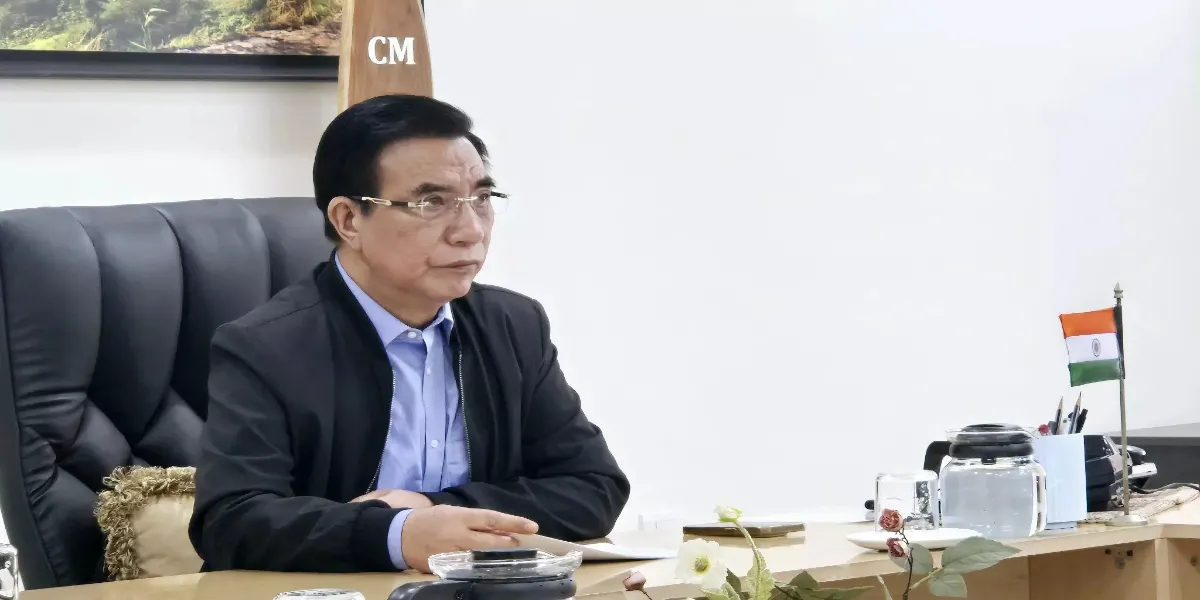
Mizoram To Build Rs 139 Billion Pumped Storage Power Plant
Mizoram Chief Minister Lalduhoma on Friday announced plans to construct a 2,400 MW pumped storage hydroelectric power plant in Hnahthial district, marking a major step towards achieving energy self-sufficiency in the state. Addressing the Mizo Students’ Union general conference in Hnahthial town, the Chief Minister said the plant would be developed across the Darzo Nallah, a tributary of the Tuipui river. Once operational, the project is expected to play a pivotal role in meeting Mizoram’s rising electricity demand and reducing dependence on imported power. Officials from the State Power..
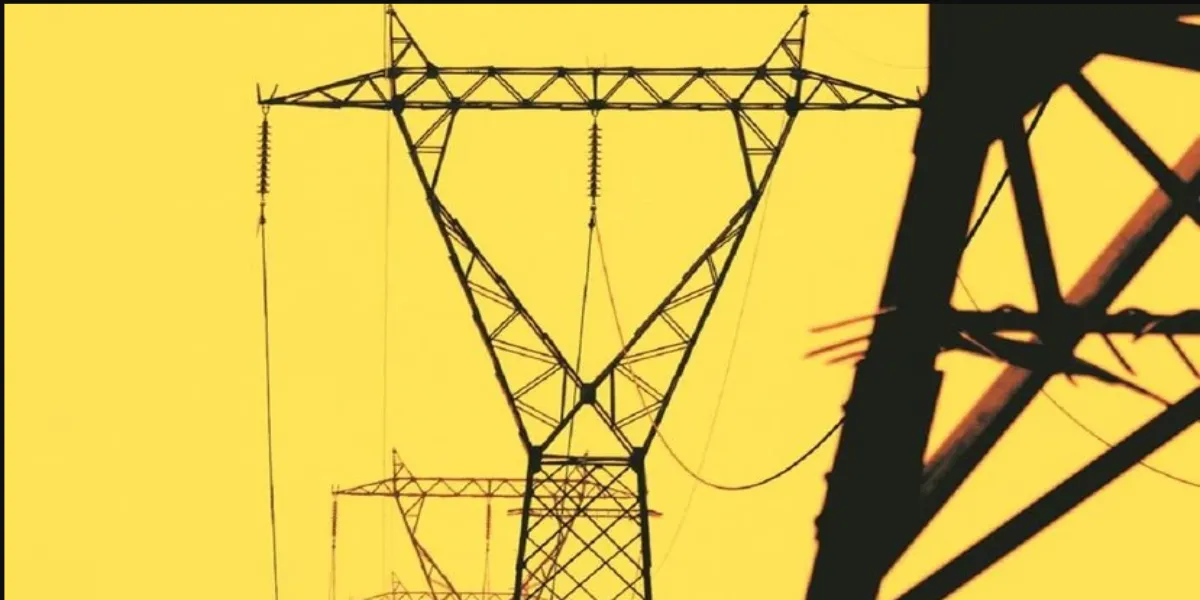
Centre Plans Nationwide Opening Of Power Retail Market
India is preparing to open up its retail electricity market to private companies nationwide, effectively ending the long-standing monopoly of state-run power distributors in most regions, according to a draft bill released by the Union Power Ministry on Friday. The move will enable major private sector players — including Adani Enterprises, Tata Power, Torrent Power, and CESC — to expand their presence across the country’s electricity distribution landscape. A similar reform attempt in 2022 had faced strong opposition from state-run distribution companies (discoms), which currently dom..
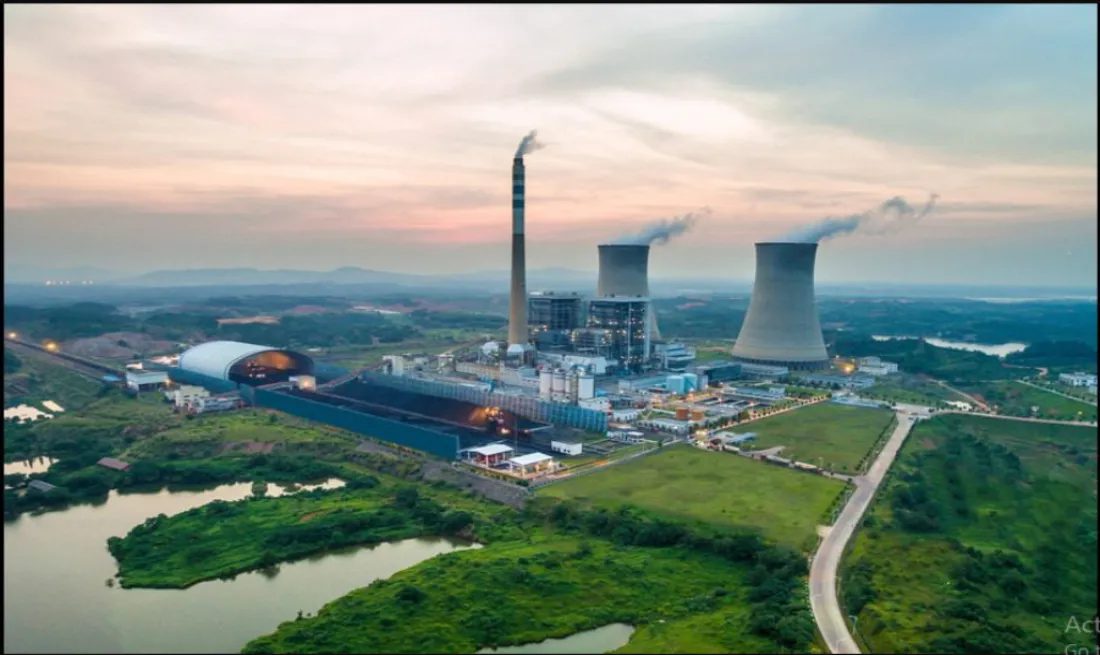
CEA Sets 100 GW Nuclear Target For India By 2047
In a landmark step marking its 52nd Foundation Day, the Central Electricity Authority (CEA) unveiled an ambitious roadmap to develop 100 gigawatts (GW) of nuclear power capacity by 2047, aligning with India’s long-term Net-Zero commitment and energy security objectives. The event, held at the Central Water Commission auditorium in New Delhi’s R.K. Puram, was attended by Pankaj Agarwal, Secretary, Ministry of Power, who served as the Chief Guest. The roadmap sets out a detailed plan to expand India’s nuclear capacity from its current level of approximately 8,180 MW as of early 2025, outl..
Latest Updates
Recommended for you
Advertisement
Subscribe to Our Newsletter
Get daily newsletters around different themes from Construction world.
Advertisement
subscribe to the newsletter
Don't miss out on valuable insights and opportunities
to connect with like minded professionals






